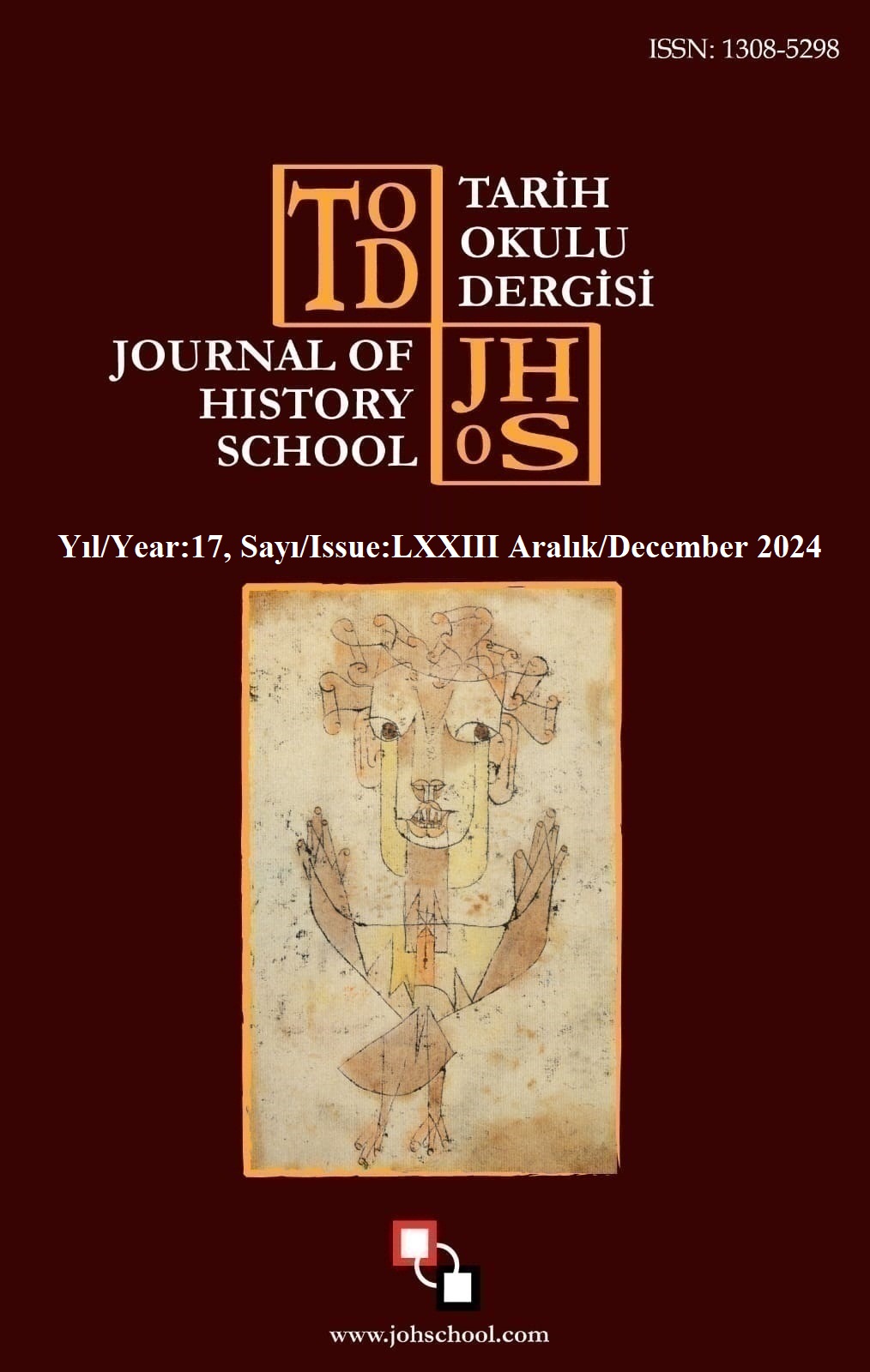Author :
Abstract
Klasik Türk edebiyatı temsilcileri yazdıkları eserler vasıtasıyla zaman zaman toplumla aralarında bir bağ kurabilmiş, yer yer halkın diline, duygu ve düşünce dünyasına tercüman olmuşlardır. Genelde kaside ve gazellerle bilinen klasik edebiyatın önemli nazım şekillerinden biri de mesneviler olmuştur. Konularına göre farklı başlıklar altında değerlendirilen mesnevilerin bir çeşidi de dinî ve ahlakî mesnevilerdir. Nitekim 15-16. yüzyıl şairi Ahmed-i Rıdvân’ın yazdığı Rıdvâniyye bu kategoridedir. Rıdvâniyye, şairin diğer mesnevilerinde görülen konu bütünlüğünün aksine birbirinden bağımsız konulardan oluşmaktadır. Bu konular genellikle dinî ve tasavvufî özelliktedir. Mesela “tevhit, iman, ibadet, edep, tövbe, sabır, rıza, hamd, şükür, aşk, nefis” ve benzeri birçok unsurun/kavramın eserde geçtiği tespit edilmiştir. Ahmed-i Rıdvân ele aldığı bu konularla birtakım dinî ve tasavvufî hususlara dikkat çekmiştir. Dolayısıyla bu çalışma, insanı doğrudan ilgilendiren din ve buna bağlı olarak tasavvufa dair unsurların/kavramların şair tarafından nasıl ele alındığının ortaya konulması açısından önemlidir. Çalışmada eserin tamamı incelenmiş, eserde geçen dinî ve tasavvufî içerikli beyitlerden bazıları örnek olarak verilmiştir. Eserden seçilen beyitler konu bağlamında, yani anlama dayalı şerh yöntemiyle açıklanmıştır. Böylece Rıdvâniyye’nin dinî ve tasavvufî yönden zengin bir kavram/unsur çeşitliliğine sahip olduğu, bunların çoğunlukla dinî ve tasavvufî muhtevayı aksettirecek tarzda eserde kullanıldığı sonucuna ulaşılmıştır.
Keywords
Abstract
Classical Turkish literature representatives have established a bond with society through the works they wrote, acting as interpreters of the people’s language. One of the important verse forms of classical literature, generally known with qasida and ghazals, has been masnavi. One type of masnavi, evaluated under different titles based on their subjects, is the religious and moral masnavi. For instance, the work Rıdvaniyye by Ahmed-i Rıdvan, the 15-16th century poet, this is in category. Unlike the thematic unity observed in the poet’s other masnavis, Rıdvaniyye consists of independent topics, primarily with religious and mystical characteristics. Elements and concepts such as “monotheism, faith, worship, etiquette, repentance, patience, acceptance, praise, gratitude, love, the self” and so on are identified in the work. Ahmed-i Rıdvan drew attention to several religious and sufi issues with these issues he dealt with. Therefore, this study is significant in revealing how the poet addresses elements and concepts related to religion and, consequently, mysticism, which directly concern people. The entire work was examined in the study and some of the couplets with religious and Sufi content in the work were given as examples. The selected couplets from the work were explained through an annotation method based on their meaning. Thus, it has been concluded that Rıdvaniyye has a wide variety of concepts/elements from a religious and Sufi point of view, and these are mostly used in work to reflect the religious and Sufi content.





